Historic Townhouse in the Kalorama area
Washington, DC
Here's how we did it:

A view of the badly deteriorated terra cotta block. The use of terra cotta block was discontinued in the
Washington area about 1920, when cinder block was introduced. A lot of terra cotta was locally made.
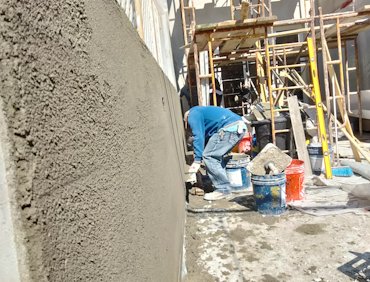
We used our super mortar mix with strongbond to fill in the holes and for the scratch coat on the terra cotta.
Here, the wall is straightened using a string line. Wall is dead straight and dead plumb.
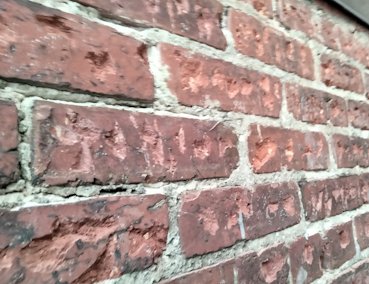
Old 1908 bricks were a little slick and were chipped for a good bond.
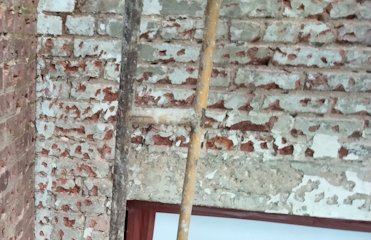
Painted bricks were chipped up as well. Of course we used our 50-50 mix of strongbond and water
in the scratch coat. We have been using strongbond instead of flexcon because the price of flex con went up.
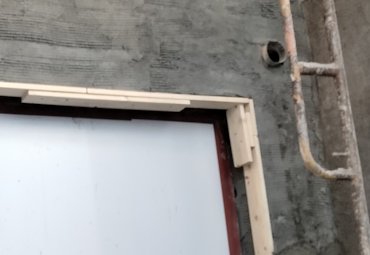
Window returns and all outside corners were done by setting wood strips.

Here, the wall is filled and rodded off to the wood strips.

Original brick band was 2 inches thick on one end and zero on the other.
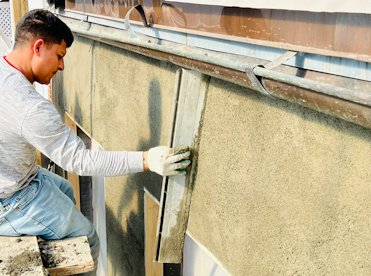
Band was straightened up by forming with wood strips and styrofoam and filling in.
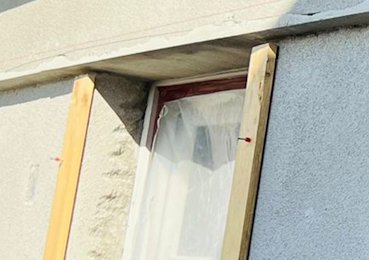
Window returns are done by setting wood strips with a square and a level and filling in.
These returns are dead plumb and dead square.
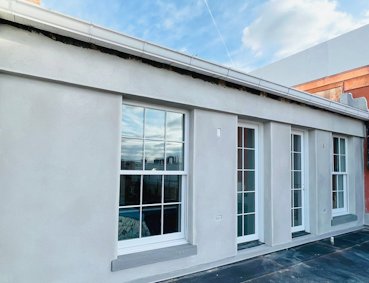
A view of the finished wall. The finish coat is REAL cement and REAL sand with a color.
Sills are formed and filled with solid cement mortar. A darker color was used for contrast.
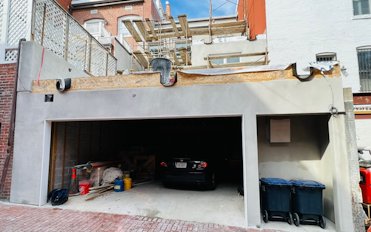
The garage entrance on the alley. The finish is white portland cement and white lime.
The sand is half number one Q-rock and half number 2, that is fine and medium. Q-rock is crushed quartz
made by US Silica in West Virginia

Nothing synthetic here. A REAL color cement finish.
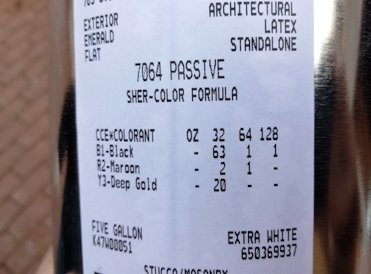
The color is a grayish off white. Here is the formula for 5 gallons.

Color is mixed in a garbage can. The liquid mix is 10 gallons of strongbond and 10 gallons of water.














